Counting skills Easy Numbers Worksheets for Ages 8-9
6 filtered results
-
From - To
Explore our engaging "Counting Skills Easy Numbers Worksheets" designed specifically for kids aged 8-9! These worksheets are crafted to enhance number recognition and counting skills in a fun, interactive way. With a variety of exercises tailored to reinforce learning, your child will practice counting, skip counting, and developing a strong foundation in mathematics. Each worksheet includes colorful illustrations and clear instructions, making it easy for young learners to follow along. Ideal for homeschooling, classroom use, or summer learning, our resources support early math mastery and help build confidence. Dive into our collection today and watch your child excel in counting!
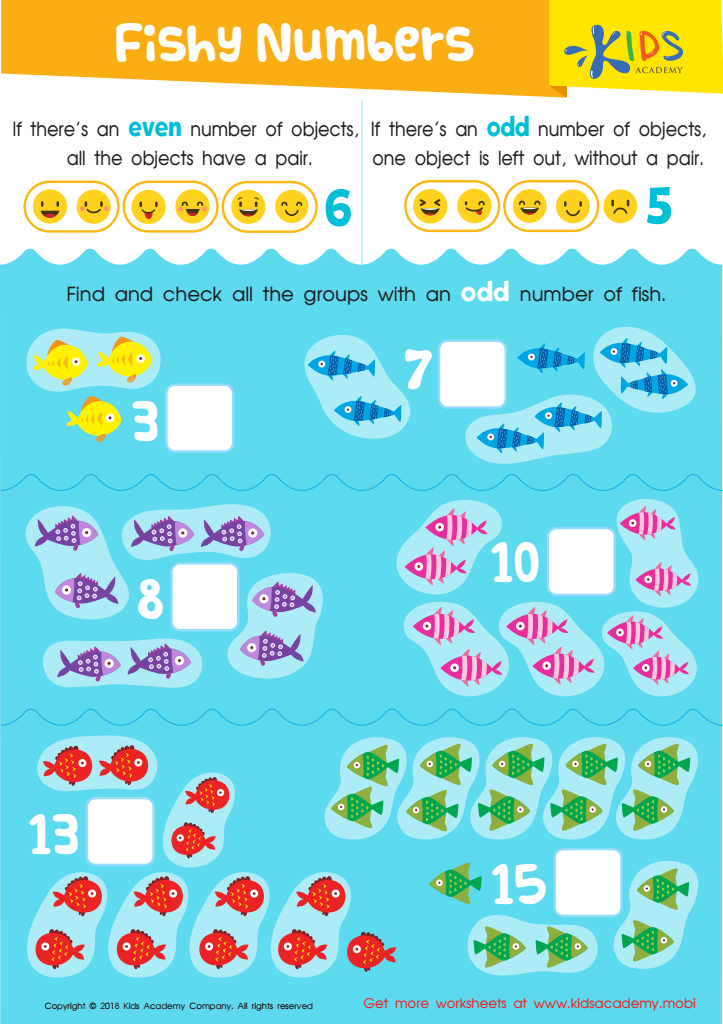

Fishy Numbers Worksheet
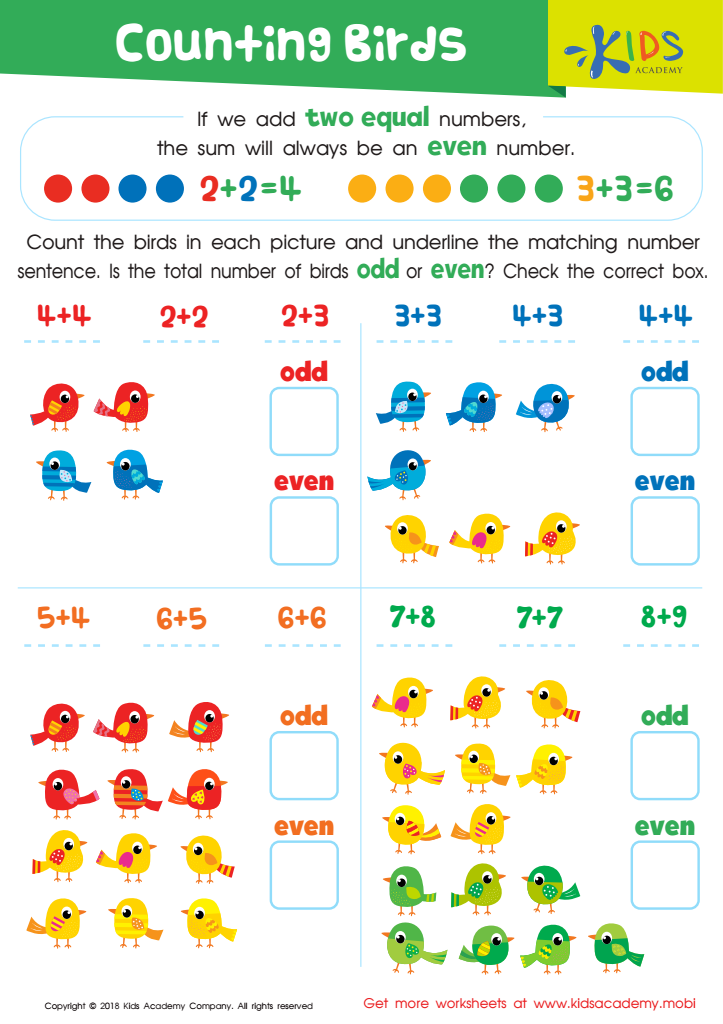

Counting Birds Worksheet
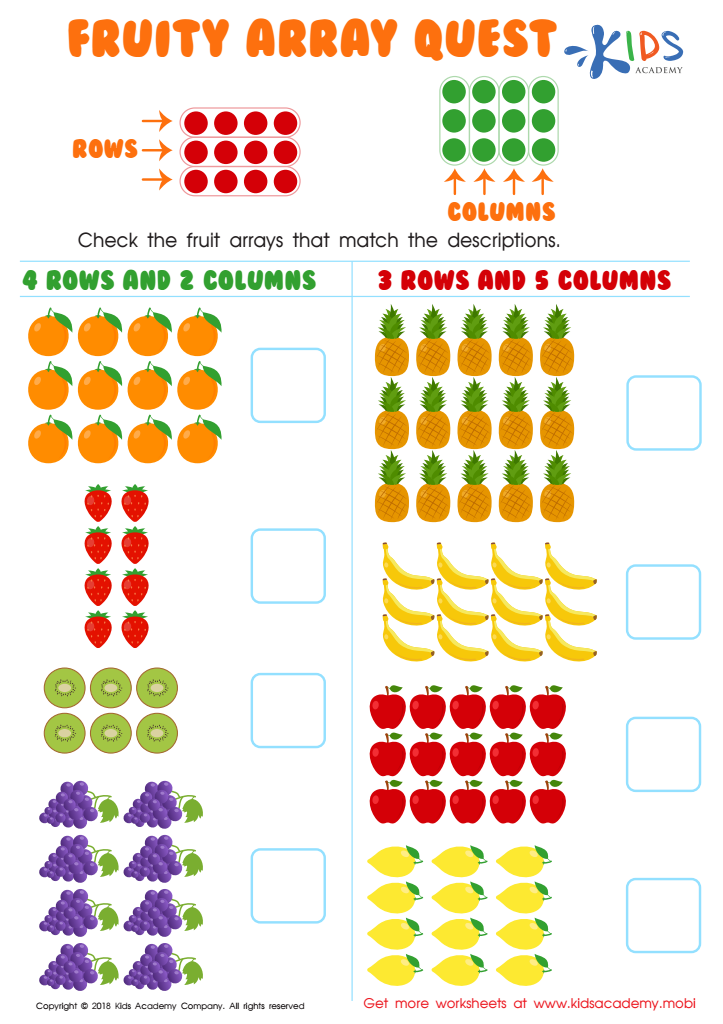

Fruity Array Quest Worksheet
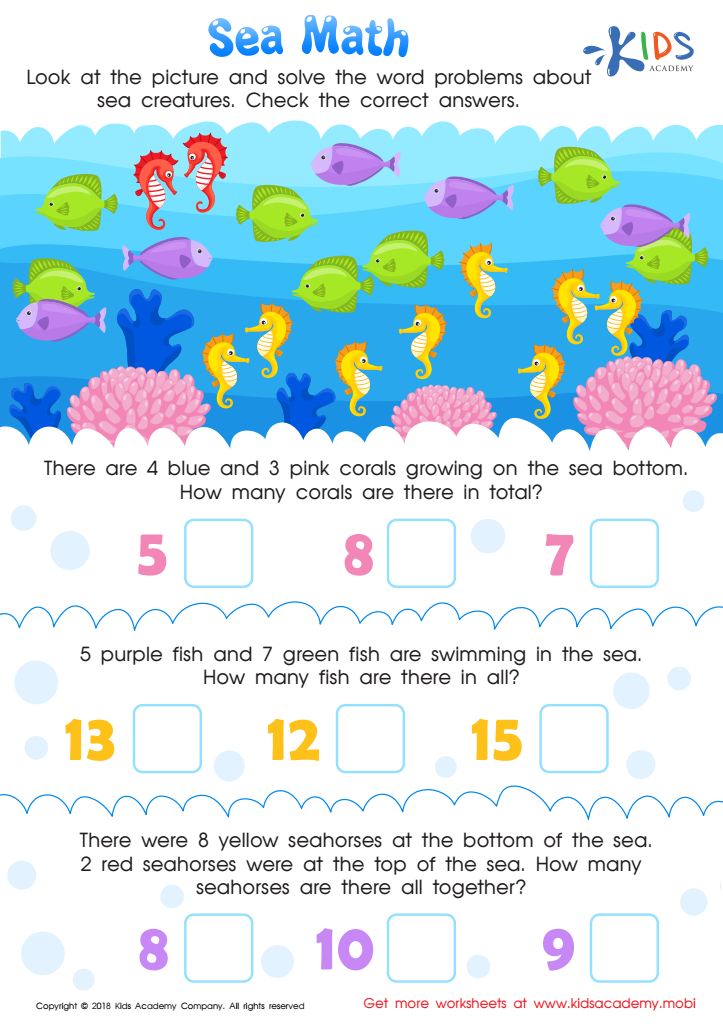

Sea Math Worksheet


Colorful Arrays Bingo Worksheet
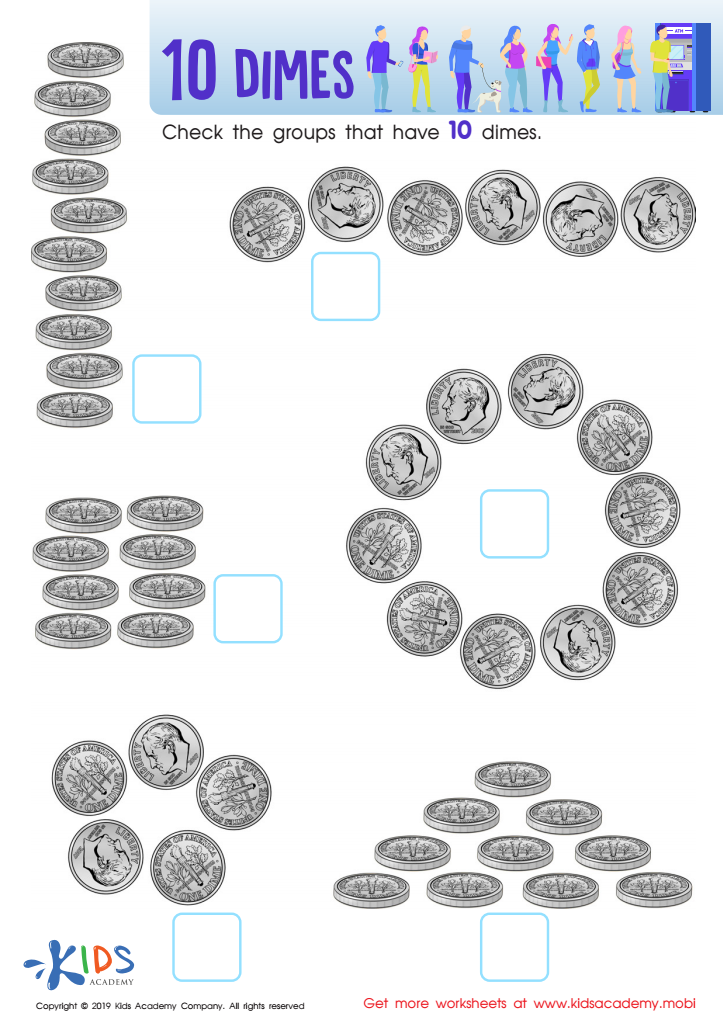

10 Dimes Worksheet
Counting skills form the foundation for a child's mathematical understanding and are vital for cognitive development, especially for children ages 8-9. This age range typically marks a transition where students move from basic counting to more complex concepts such as addition, subtraction, and problem-solving. By sharpening counting skills, children enhance their ability to recognize number patterns, which is essential for future math topics.
Furthermore, counting activities encourage logical thinking and promote perseverance as children learn to tackle problems in an organized way. They are not merely academic skills; counting helps children develop everyday life skills, such as managing money, measuring ingredients for cooking, or time management.
Parents and teachers play a critical role in nurturing these skills. Engaging children in enjoyable and practical counting activities, both at school and home, fosters a positive attitude towards math. Regular practice not only builds confidence but also helps identify any gaps in understanding early, allowing for timely intervention.
Ultimately, caring about counting skills ensures that children are not only prepared for academic success but also equipped with essential tools for navigating the world around them confidently. Strong counting skills ultimately contribute to a lifelong appreciation of mathematics.
 Assign to My Students
Assign to My Students




















